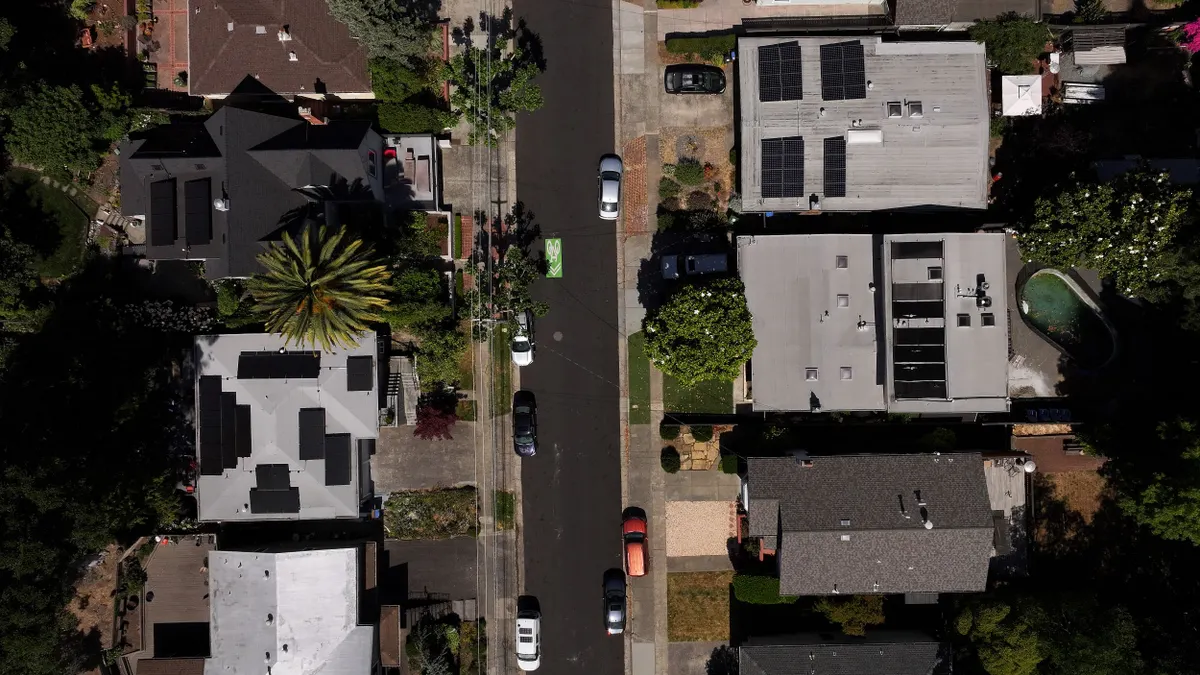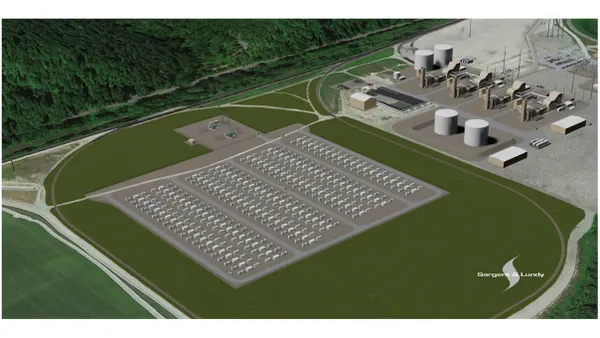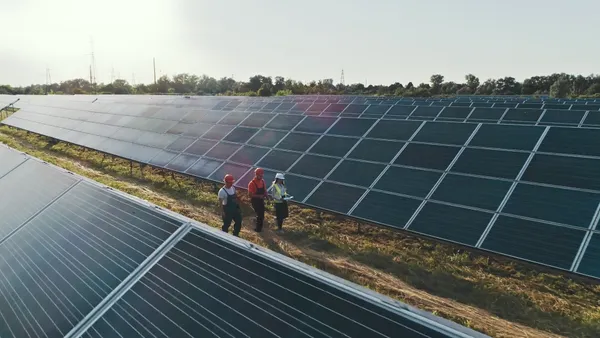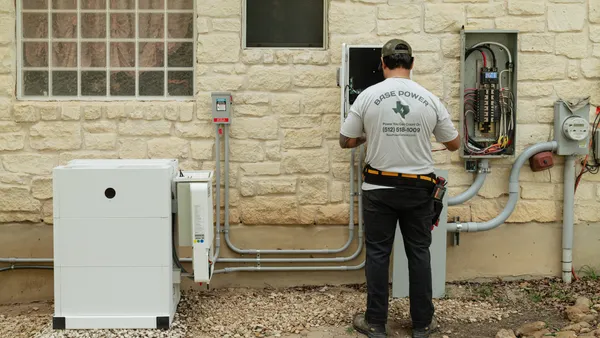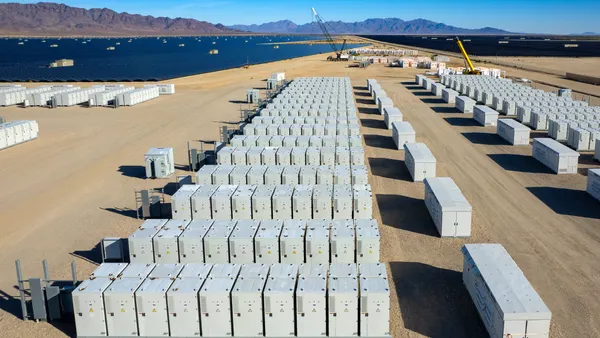Dive Brief:
- The New York Public Service Commission (PSC) will modify the state's energy storage deployment program, extending the next in-service deadline from 2022 to 2025. However, the commission rejected a request from state utilities to allow for utility-owned storage projects.
- The order came in response to a petition from the Joint Utilities group, composed of New York's electric investor-owned utilities, who said the state needed to tweak its 2018 Energy Storage Order to meet the state's goal of deploying 3,000 MW of storage by 2030. Most of the group was not able to meet initial storage deployment targets in the first round of competitive solicitations.
- The utilities group had sought to allow developers to propose projects that would be purchased and owned by the utilities in order to create more market certainty. The commission, however, said there was "no compelling reason presently to modify its stated preference for third parties to develop these projects."
Dive Insight:
Under New York's 2018 Energy Storage Order, utilities were required to acquire dispatch rights for bulk-level energy storage systems that would be operational by December 31, 2022. Con Edison was given a target of at least 300 MW of storage, with five other utilities required to contract for at least 10 MW each. However, an initial round of solicitations in 2019 and 2020 did not fulfill those requirements.
In order to make the next round of competitive solicitations more successful, the utilities petitioned for, and were granted, two changes: an extension of the 2022 deadline and an extension to the dispatch rights contract from seven to ten years, which allows for a lower annual contract cost and less of an impact to ratepayers.
"This order will help the state meet its energy storage goals and maximize the value of the large amounts of solar and wind energy that will be added to the state's portfolio," ConEd spokesperson Allan Drury said. "The changes in the order will drive interest and competition among developers, allow adequate time for negotiations between utilities and bidders, permitting and construction and provide developers with more flexibility in financing projects, all of which should lower the cost of achieving the state's goals."
In addition to ConEd, the Joint Utilities group includes Central Hudson Gas & Electric, New York State Electric & Gas, National Grid, Orange & Rockland Utilities and Rochester Gas and Electric. National Grid reported that it is on track to meet the original order mandate of a minimum 10 MW energy storage in place by Dec. 31, 2022.
More controversial was the petitioners' request for a utility ownership model, under which utilities would purchase storage assets for a limited time, then conduct a bidding process with third parties to sell the asset. Under the proposal, the utilities would set a price floor for the assets and, if it were not met, they would retain ownership for two additional years. According to their petition, this option would give developers more certainty about revenue in the still-emerging market and could attract engineering and construction firms who may be interested in developing, but not owning, energy storage.
Advocates, however, said there was not a compelling reason to make the change and that it could roll back state policies encouraging a competitive electricity market. In a comment, the New York Battery and Energy Storage Technology consortium said that allowing utilities to own assets could skew the market and disadvantage developers who want to own their own assets. The PSC ultimately agreed, saying that as the New York Independent System Operator rules continue to evolve, developers will see more certainty for revenue streams. However, the order also notes that "capacity market uncertainty in some locations, due to buyer-side mitigation rules, remains a large obstacle" that the PSC will address in future proceedings.
Matthew Schwall, director of market policy and regulatory affairs for the Independent Power Producers of New York, praised the commission for "giving the energy storage market the space it needs to grow with some smart tweaks to the procurement structure."
"Projects will become more viable with new market rules and improving economics, not because the utilities offer to own the projects," Schwall said in an email.
Clarification: The article has been updated to include comments from National Grid that it is on track to meet the original deadline.




